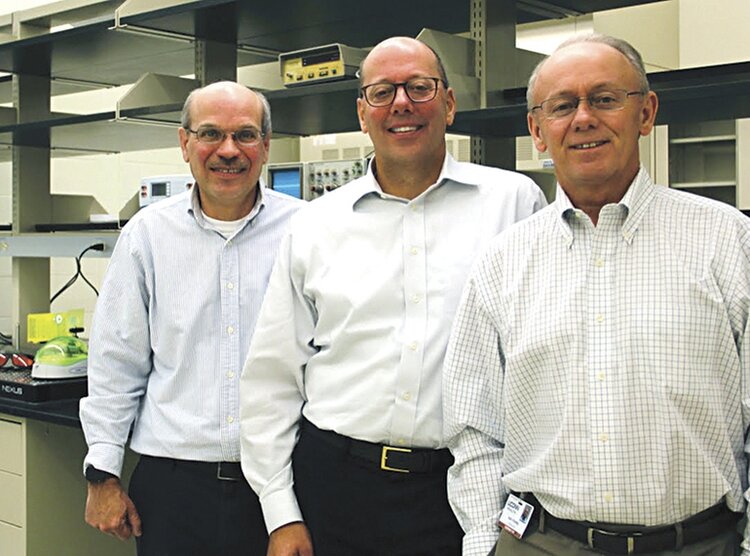Aserial Connecticut entrepreneur recently raised $3.7 million to help his latest startup, Farmginton-based Cytoveris, develop an imaging tool that assists surgeons in removing cancer tissue with greater precision.
The early stage company is the brainchild of venture investor and scientist Alan Kersey, who is also currently chairman of West Hartford-based ReadyDock, which makes UV-based disinfection systems for cell phones and other applications in hospital settings.
The point of Cytoveris’ technology is to help doctors remove all cancer cells during surgery, while leaving intact as much normal tissue as possible, creating so-called “clean margins” that are particularly important for breast cancer patients — the startup’s targeted market at the outset.
Cytoveris is developing several optical-sensing methods, including a form of spectroscopy, that can scan just a few cells at a time.
So-called Raman spectroscopy, which has been around for decades and is increasingly being tapped for various commercial applications, uses a laser beam to detect molecular differences in tissue.
One advantage of Raman, Kersey said, is it can distinguish both surface tissue as well as tissue several millimeters deep.
“They want to conserve the normal tissue, but remove the lump and ensure there is a clean margin around the lump with healthy, normal tissue,” Kersey said. “They don’t want to cut too much out.”
Kersey said he’s hoping to “build a better mousetrap” to compete with existing surgeon tools, which he said aren’t as effective in probing deep tissue.
Kersey said demand for the technology he envisions could be significant. There are approximately 266,000 breast-cancer diagnoses in the U.S. each year. However, about one in four breast-cancer patients have multiple surgeries because the surgeon isn’t able to extract all the cancer cells on the first try, according to BreastCancer.org. That can be traumatic and costly for the patient.
Problem-solver
Kersey has significant Connecticut business history. In 1997, he was founding chief technology officer of Wallingford-based CiDRA, which makes process-optimization technology. He later became CEO of a CiDRA genetics and laboratory analytics spinout that was acquired by Illumina in 2005.
“I’ve been involved in multiple startups,” Kersey said. “I like to go around, talk to a lot of people and understand what the real problem is and look for technology solutions that can solve them.”
Kersey is also an investor. He and his partners lead Cycle Venture Partners, whose portfolio includes Cytoveris and New Haven’s Cybrexa Therapeutics.
Kersey said he hopes Cytoveris, which has optioned a license for Raman-based intellectual property developed by a Vanderbilt University professor, can build a prototype device sometime next year.
The device would first be tested on excised tumors, with the hope of eventually getting Food & Drug Administration approval for human trials.
Cytoveris is planning to work with oncologists and pathologists at both UConn Health and Yale New Haven Health to further develop and test the device, he said.
AS SEEN ON HARTFORDBUSINESS.COM

